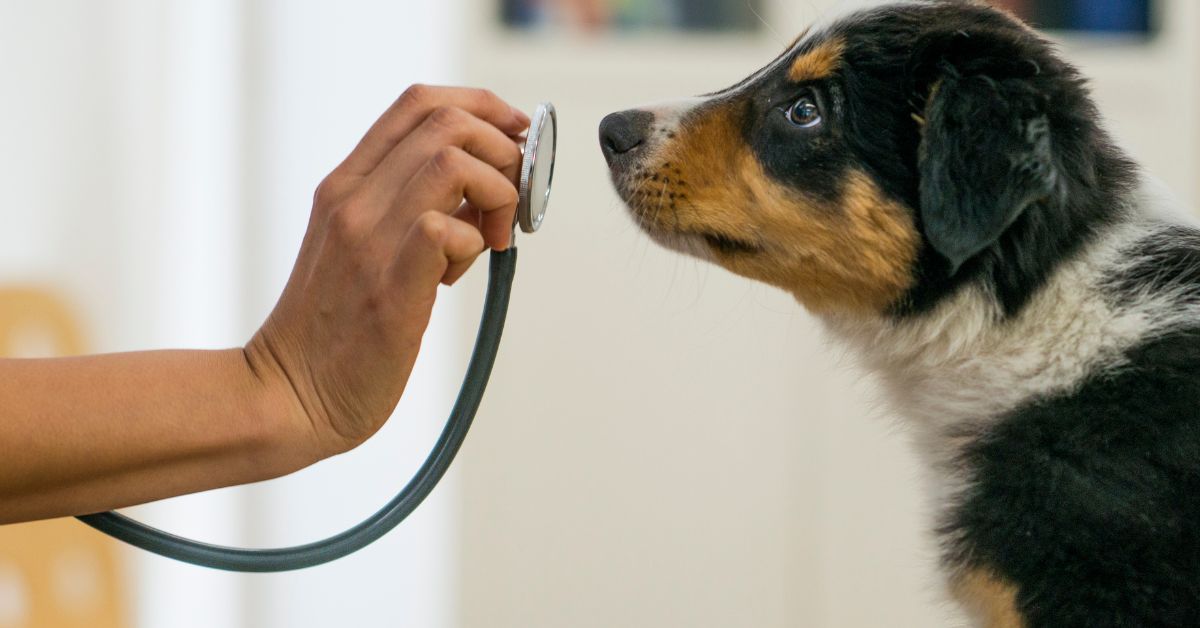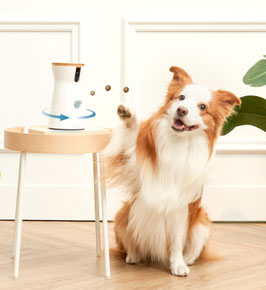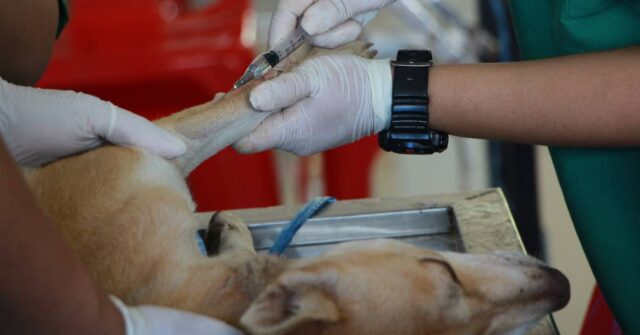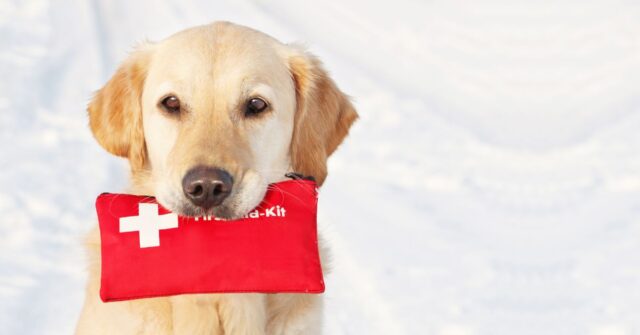Ensuring your dog is healthy and happy involves regular visits to the vet. These routine check-ups are essential for early detection of health issues and for maintaining your pet’s overall well-being.
This guide will help you prepare for these visits, making the process smoother for both you and your furry friend.
The Importance of Regular Vet Visits
Regular vet visits are crucial for keeping your dog in top shape. They help in catching potential health problems early, ensuring your dog lives a long and healthy life.
Why Regular Check-ups Matter
Routine check-ups allow vets to detect issues that might not be apparent at home.
These visits are opportunities to monitor your dog’s growth and health trends over time, providing a comprehensive view of their well-being.
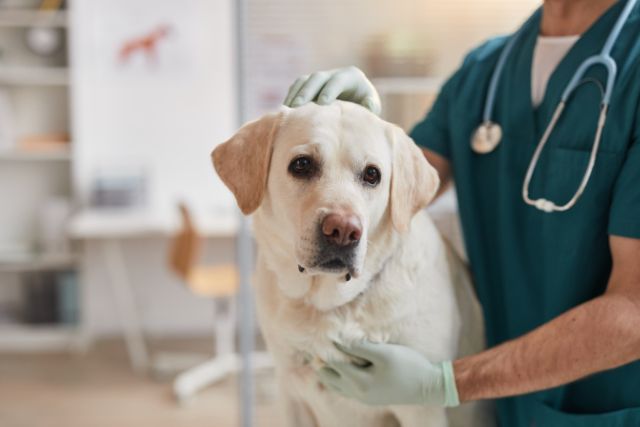

Early Detection of Health Issues
Early detection can save your dog’s life. Many conditions, such as heart disease or diabetes, are manageable if caught early.
Regular vet visits enable early diagnosis and prompt treatment, which can prevent more severe health problems down the line.
Preventative Care and Vaccinations
Vaccinations are a key part of preventative care, protecting your dog from various infectious diseases.
Regular check-ups also include parasite control and dental care, which are essential for maintaining your dog’s overall health.
Preparing Your Dog for a Vet Visit
Preparation can make a significant difference in how your dog perceives vet visits. A calm and well-prepared dog is easier to examine and treat.
Tips to Reduce Pet Stress
To reduce stress, familiarize your dog with car rides and the vet’s office environment. Bring along their favourite toys or treats to create positive associations.
Consider scheduling appointments during quieter times to avoid crowded waiting rooms.
What to Bring to the Vet
Always bring your dog’s medical records, a list of any medications they’re taking, and notes on any recent changes in behaviour or health.
Having this information handy helps the vet provide the best care possible.
How to Make the Trip Comfortable
Ensure your dog is safely secured in the car, either in a crate or with a seatbelt harness. Speak to them in a calm and reassuring voice, and avoid feeding them right before the trip to prevent motion sickness.
What to Expect During a Routine Check-up
Understanding what happens during a vet visit can help you and your dog feel more at ease. Here’s a breakdown of a typical check-up.
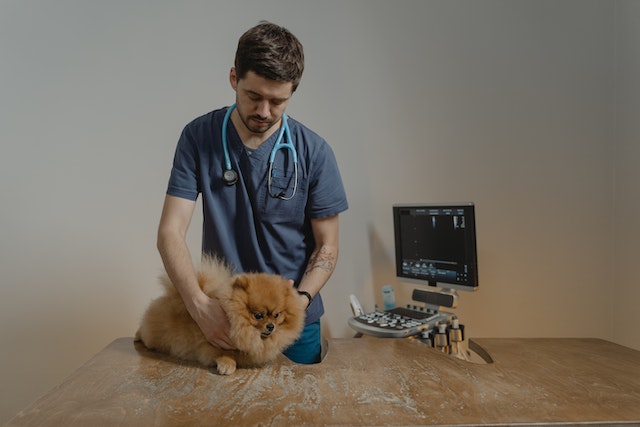

The Nose-to-Tail Examination
Your vet will conduct a thorough physical examination, starting from the nose and moving to the tail. This includes checking the eyes, ears, teeth, skin, and overall body condition.
They will listen to the heart and lungs and feel the abdomen for any abnormalities.
Common Procedures and Tests
Common procedures during a check-up may include blood tests, urinalysis, and fecal exams to check for parasites. Vaccinations and booster shots are also administered as needed.
Understanding Your Dog’s Health Report
After the examination, the vet will discuss their findings with you. This health report will cover any areas of concern and recommendations for treatments or lifestyle adjustments to keep your dog healthy.
Comprehensive Health Checks
Regular vet visits cover various aspects of your dog’s health. Here’s what a comprehensive health check typically includes.
Dental Health and Maintenance
Dental health is crucial for your dog’s overall well-being. Regular dental checks help prevent periodontal disease, which can lead to more serious systemic issues.
Brush your dog’s teeth regularly and use dental chews to maintain their oral health.
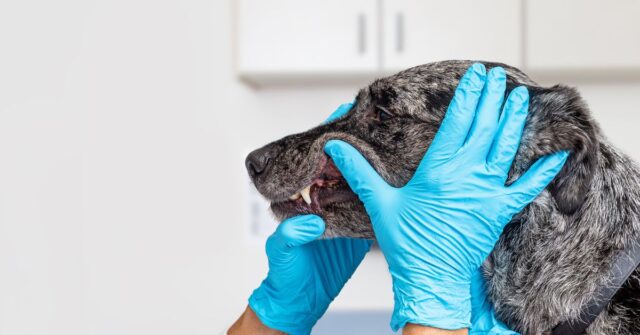

Weight Management and Nutrition
Maintaining a healthy weight is vital for preventing obesity-related diseases. Your vet can provide a tailored diet plan and recommend portion sizes to keep your dog at a healthy weight.
Parasite Control and Prevention
Regular check-ups include tests for parasites like fleas, ticks, and worms. Preventative treatments are essential to protect your dog from these common pests.
Monitoring Chronic Conditions
If your dog has a chronic condition, regular visits are necessary to monitor their health and adjust treatments as needed. This ongoing care ensures your dog stays comfortable and healthy.
After the Vet Visit
Post-visit care is just as important as the visit itself. Follow these steps to ensure your dog remains healthy between check-ups.
Following the Vet’s Advice
Adhere to any treatment plans or medication schedules prescribed by your vet. Consistency is key to managing your dog’s health effectively.
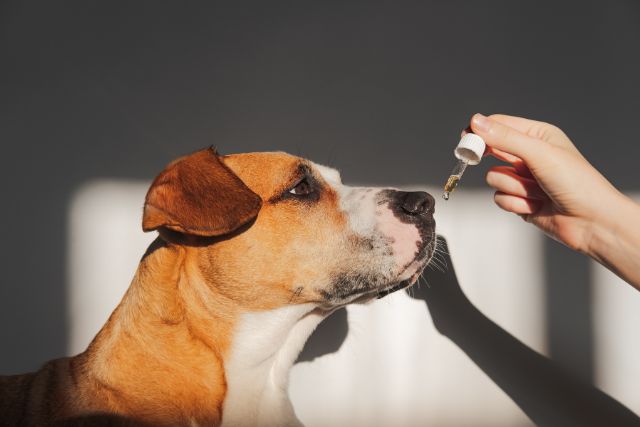

Scheduling Follow-Up Appointments
Regular follow-up appointments allow your vet to monitor your dog’s progress and make any necessary adjustments to their care plan. Schedule these appointments as recommended.
Home Care and Monitoring
Keep an eye on your dog’s behaviour and health at home. Note any changes and report them to your vet. Regular grooming and home health checks can help you spot potential issues early.
Special Considerations for Puppies and Senior Dogs
Puppies and senior dogs require special attention due to their unique health needs. Here’s what to keep in mind for these age groups.
Health Checks for Puppies
Puppies need frequent vet visits for vaccinations and to monitor their growth and development. These visits help ensure they get a healthy start in life.
Health Checks for Senior Dogs
Senior dogs are more prone to certain health issues, such as arthritis and kidney disease. Regular check-ups are crucial for early detection and management of these conditions.
Common Questions and Concerns
Many pet owners have questions about vet visits. Here are some common concerns and answers to help you feel more prepared.
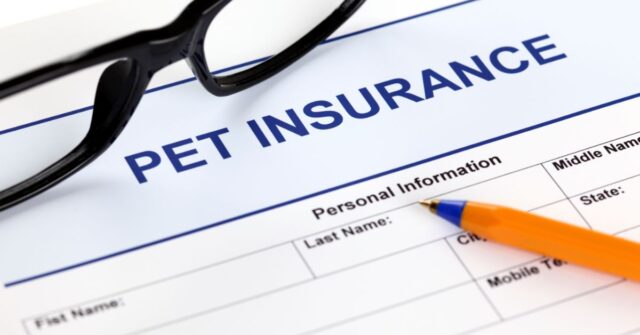

Understanding Veterinary Costs
Veterinary care can be expensive, but it’s an essential part of responsible pet ownership. Consider pet insurance to help cover unexpected costs and budget for routine visits.
How Often Should You Visit the Vet?
Most dogs should visit the vet at least once a year for a check-up. Puppies and senior dogs may need more frequent visits. Your vet can recommend the best schedule based on your dog’s needs.
Dealing with Veterinary Anxiety in Dogs
If your dog is anxious about vet visits, try calming techniques like bringing their favorite toys or using anxiety wraps. Talk to your vet about other options to make the visit less stressful.
Conclusion
Regular vet check-ups are vital for your dog’s health. They help detect issues early, provide preventative care, and ensure your dog lives a happy and healthy life.
Make vet visits a positive experience for your dog, and you’ll both benefit from the peace of mind that comes with knowing they’re well cared for.

